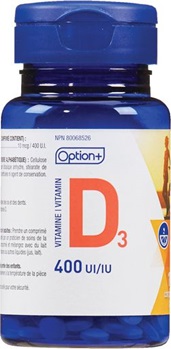6 Tips for Strong and Healthy Bones
Bones are living structures that are constantly regenerated. Here are six tips to help your bones regenerate and stay healthy.Stay active
Regular physical activity helps bones regenerate. Weight-bearing exercises, i.e., those that require your bones to support your weight, like walking, dancing, skating, and ball sports, are best for strengthening your bones.
It’s also a good idea to do activities that strengthen muscles and improve balance, as this reduces your risk of falling and suffering a fracture. Tai chi and yoga are two such activities anyone can do.
Eat a diet rich in calcium
Calcium is an essential element for bone health. You should aim to eat calcium-rich foods on a daily basis. These include:
- milk, yogurt, or cheese
- fortified plant-based beverages (e.g., soy or rice beverage) or orange juice
- fatty fish like salmon or sardines
- dark-green vegetables (e.g., broccoli, kale, spinach)
Up to the age of 50, you should be getting an average of 1,000 mg of calcium a day through your diet. Those over the age of 50, especially women, should aim for 1,200 mg a day. A registered dietitian can help you determine whether your diet is sufficiently high in calcium. You can also check out the Osteoporosis website to calculate your needs. If you need more calcium, your health professional can recommend a supplement that meets your needs.

Get enough vitamin D to help calcium absorption
Vitamin D is essential to help your body absorb as much calcium as possible from the foods you eat. According to Health Canada, adults should have a daily intake of about 600 IU of vitamin D (800 IU after the age of 70).
Most of your vitamin D comes from exposure to the sun. If you don’t go outside on a regular basis because of your health or use sunscreen diligently every time you go outside, you should make sure your diet is rich in vitamin D.
In Canada, milk and margarine are required to be fortified with vitamin D. Some other foods are fortified on a voluntary basis, for example plant-based beverages and calcium-fortified juice. Fish, meat, offal, and egg and fortified dairy are all natural sources of vitamin D.
A registered dietitian can help you determine whether your diet is sufficiently high in calcium and vitamin D.If need be, your health professional can recommend a supplement that meets your need.

Limit your caffeine intake, no more than 2 or 3 cups of coffee a day
Too much caffeine in your diet can interfere with the absorption of calcium. Avoid exceeding 400 mg of caffeine a day (approximately two or three cups). Remember that cola-type soft drinks and energy drinks can also contain large amounts of caffeine.Drink alcohol in moderation
Alcohol consumption contributes to bone loss. Follow Canada’s recommended guidelines for the consumption of alcoholic beverages:
- Women: no more than 2 drinks per day (maximum 10 per week)
- Men: no more than 3 drinks per day (maximum 15 per week)
Butt out and give up smoking for good!
Tobacco use speeds up bone loss and increases the risk of fracture and therefore is not recommended. If you want to quit smoking, talk to your health professional, who can recommend smoking cessation aids to help you butt out for good!The pharmacy services presented in this section are offered by pharmacist owners who are affiliated with Proxim. The pharmacists are solely responsible for the professional activities carried out during the practice of pharmacy.
The information contained herein is provided for informational purposes only and is not intended to provide complete information on the subject matter or to replace the advice of a health professional. This information does not constitute medical consultation, diagnosis or opinion and should not be interpreted as such. Please consult your health care provider if you have any questions about your health, medications or treatment.
